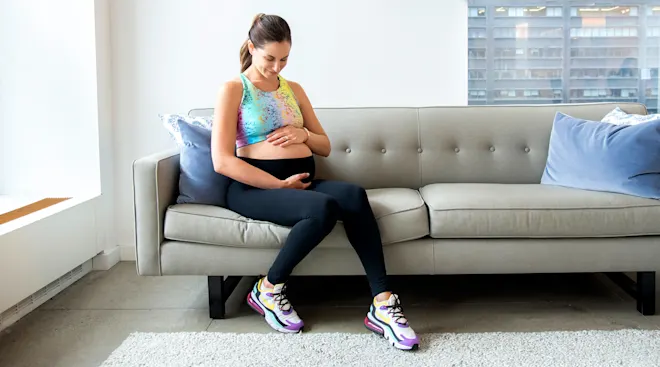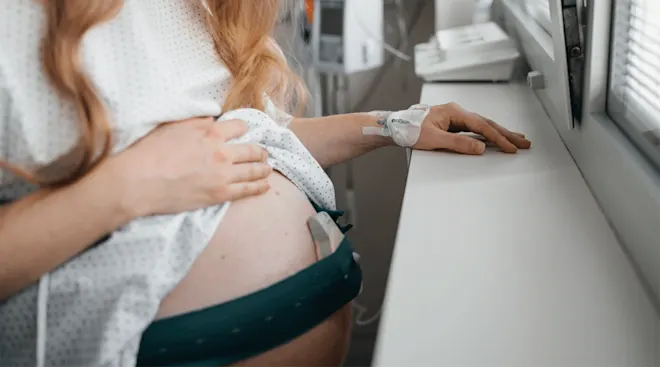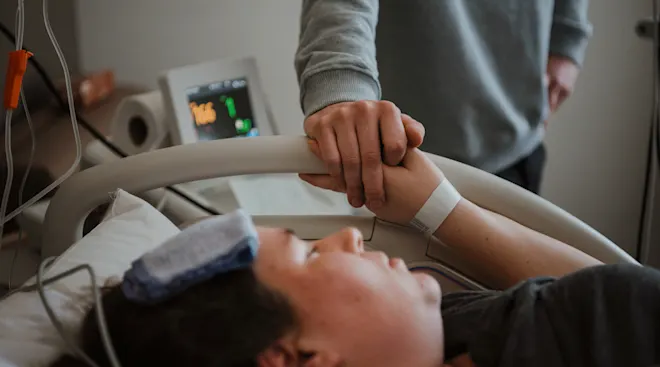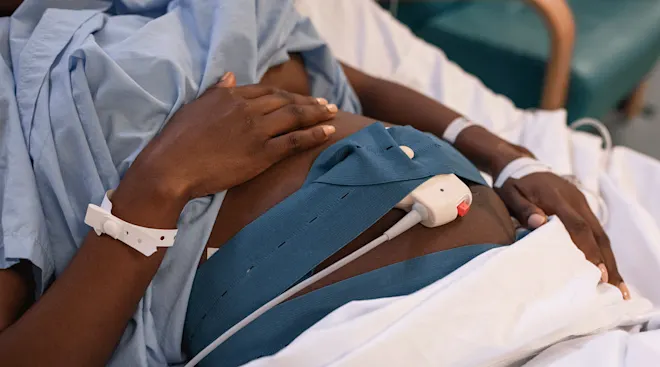Postbirth: What to Take Home From the Hospital (Besides Baby)
While it’s probably the least sexy goody bag you’ll ever receive, the loot your hospital sends you home with will definitely come in handy. And come on, who doesn’t love freebies?
While every hospital is different in what they send you home with, you should come away with some combination of these items. There are several postpartum essentials you’ll need for recovery, and you can likely snag a bunch of them for free upon discharge. And feel free to ask for what you want! More than you realize might be up for grabs. Don’t feel shy about taking as much as they’ll let you—and don’t turn anything down.
- Peribottle. You may cringe now, but after giving birth the peribottle will become your best friend. After a vaginal delivery, especially if you’ve had a tear or episiotomy, you’ll be way too tender to wipe after you go to the bathroom. And urine can sting and burn as you pee. Fill the peribottle with warm water and squirt it on yourself as you go to the bathroom. It’s also good for cleaning all the gunk that remains after you deliver and relieving itchiness when you’re too tender to scratch.
- Super-thick maxi pads. You’ll have a very heavy flow after you give birth, so heavy-duty pads are a necessity. If you find the hospital-issue pads uncomfortable, normal pads for superheavy flow might also do the trick.
- Disposable mesh underwear. About that heavy flow—it’ll almost certainly ruin whatever underwear you have on. Not such a big deal when you’re wearing disposable undies, though! They also help keep your heavy-duty pads in place. And good news: The hospital will have a stash for your stay (and beyond). Some moms love the disposable underwear for their convenience and breathability, but if you find them uncomfortable, you can also try using old maternity underwear that you don’t mind ruining. The mesh undies are just as essential for c-section moms, because they go up over the incision site, allowing it to air out without rubbing against clothing.
- Skin numbing spray. If you have a tear or episiotomy, this will help with the pain.
- Witch hazel pads. Whether or not you have hemorrhoids, these will help soothe your entire tender area. Chilling them may provide even more relief.
- Sitz bath. This piece of plastic sits over your toilet and allows you to soak your delivery area in warm water, causing more blood to flow there and both soothe soreness and promote healing.
- Donut pillow. Sitting down ain’t easy in the days following delivery, but this round, open pillow will certainly help.
- “Puppy pad.” These waterproof pads can be placed under you while you sleep in case of leakage. (If you take them home and don’t wind up needing them, use them for baby’s diaper changes instead.)
- Pain meds. These will be particularly important if you had a c-section or an otherwise complicated delivery.
- Breastfeeding supplies. Your hospital may provide you with some nipple cream and perhaps a nipple shield to help with latching. You might be so lucky as to leave with a hand pump of your own, as well as supplies for your own electric pump.
- Any informational packets. Some hospitals give out informational booklets about postpartum and infant care, and no matter how many parenting books you have, the packets are always good for advice about both your recovery and your newborn. The hospital may also provide a resource list with information about support groups and other new-parent resources. It might not seem important right now, but after a week or two home with baby, you’ll probably be glad you brought the numbers home.
- Diapers and wipes. You’re going to need a whole lot of diapers when you get home—stock up on some free ones while you can!
- Swaddle blanket. Baby will likely spend their first couple of days wrapped up like a burrito in the classic hospital swaddle blanket. You probably have a bunch waiting for you at home, but one more definitely can’t hurt—even if just as a keepsake.
- Hat. Newborns lose a lot of body heat through the tops of their heads, so your hospital will likely provide one for baby. Don’t forget to pack it (or have baby wear it home).
- Bodysuits. Beneath the hospital swaddle, baby will probably sport a plain white onesie during their stay. What with diaper blowouts and baby spitup, you’ll be going through clothes at an alarming rate, so snag those bodysuits!
- Diaper cream. Sure, you may have added diaper cream to your registry, but it’s nice to have a few different brands to try out. The hospital has plenty, and nurses are usually happy to slip a few tubes into your discharge bag.
- Nasal aspirator. Parents swear by the bulb syringe they take home from the hospital.
- Pacifiers. If you decided to let baby have a pacifier in the hospital, make sure to bring a few of those home with you to help soothe those early cries.
- Formula samples. Even if you plan to breastfeed, having a backup formula sample on hand is smart, in case your nursing journey gets off to a rocky start (you wouldn’t be the first). Hospitals also often give out coupons for other baby products, so be sure to pick those up.
- Baby bottles and vials. If you were feeding baby formula or expressed breast milk in the hospital, they’ll have given you a few bottles or small syringe vials (newborns just need small amounts of colostrum at first, until your milk comes in). Take those home too!
Please note: The Bump and the materials and information it contains are not intended to, and do not constitute, medical or other health advice or diagnosis and should not be used as such. You should always consult with a qualified physician or health professional about your specific circumstances.
Navigate forward to interact with the calendar and select a date. Press the question mark key to get the keyboard shortcuts for changing dates.




















































